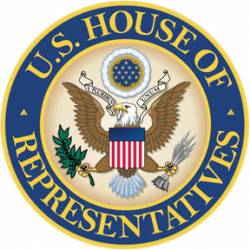Washington has seen a lot of transitions, so even amidst political controversy it’s generally business as usual.
For the GPS community that business, at least in the near term, will likely center on changes in federal leadership — with many key appointments, like a new Secretary of the Air Force, still to be determined. In addition — even at this early stage when new lawmakers are still trying to find their offices — there are issues and opportunities worth watching in emerging legislation.
Washington has seen a lot of transitions, so even amidst political controversy it’s generally business as usual.
For the GPS community that business, at least in the near term, will likely center on changes in federal leadership — with many key appointments, like a new Secretary of the Air Force, still to be determined. In addition — even at this early stage when new lawmakers are still trying to find their offices — there are issues and opportunities worth watching in emerging legislation.
As the year kicks off the federal budget and the new administration’s spending plans are sure to be leading concerns for policy insiders. The government is roughly 90 days away from having to pass, finally, its fiscal year 2017 budget. The CR or continuing resolution — the short-term funding bill passed last year to keep the government from shutting down — expires at the end of April.
One of the goals of passing the CR at the end of last year was to give the incoming Trump administration an opportunity to impact the fiscal year 2017 budget. It is not clear how much Trump officials will be able to tweak the FY17 budget, but Donald Trump has said he wants to do away with defense spending caps imposed by the Budget Control Act and to expand the military. His nominee for Secretary of Defense, retired U.S. Marine Corps General James Mattis, made it clear during his Senate confirmation hearing that he’d like to see Congress repeal the Act and its budget-strangling sequestration requirement and give the military more money to address growing demands on its resources.
During the January 12 hearing there appeared to be broad support for more military spending including from the Sen. John McCain, R-Arizona.
“The President-elect has said he wants to ‘fully eliminate the defense sequester’ and ‘rebuild our military.’ If so, he will find many allies on this Committee,” McCain wrote in his opening remarks. “The Budget Control Act is harming us in ways that our enemies could only dream. We must repeal this legislation and increase the defense topline. This will not be cheap, but it pales in comparison to the cost of failing to deter a war, or worse, losing one.”
Not everyone in Congress is open to more spending, however, and one of the most strident budget cutters has now been nominated to oversee the federal purse.
Republican Rep. Mick Mulvaney, R-South Carolina, who Trump tapped as his budget director, has a record of fiercely supporting deep budget cuts and opposing efforts to raise the government’s debt limit. He has questioned the Pentagon’s approach to acquisitions and is one of the founders of the House Freedom Caucus, a group of conservative lawmakers whose budget stance helped pushed Speaker John Boehner (R-Ohio) to resign.
Not only will any increases in DoD spending have to get past Mulvaney’s budget-hawk colleagues, they will be jockeying for funds in the midst of a scramble to both cut taxes and create jobs through infrastructure spending. Moreover, Congress will have to approve raising America’s debt ceiling in the next several months, an issue that has proved highly controversial in the past, even within the Republican Party.
Waiting
In the meantime, some elements of the GPS program are on hold. Specifically, there is unlikely to be another GPS III launch contract announcement until after the fiscal dust settles.
“We may not be able to award the contract while we’re under a CR,” said an Air Force spokesperson.
“I’m going to wait until we see the law come out. You’ve seen the marks that have been out in the language that’s there. We’ll look at how that plays with what we’ve got,” said Lt. Gen. Arnold Bunch, the military deputy in the Office of the Assistant Secretary of the Air Force for Acquisition. He spoke with reporters January 6 after an Air Force Association (AFA) breakfast.
The budget is not the only factor, said Bunch, who noted that they are working their way through the contract source selection process, but they want to see what happens with Congress.
“Hopefully when that language comes out — we’ll get everything finalized — we’ll already be ready to award the contract,” said Bunch.
The Air Force may be waiting still longer for its new GPS ground system through program progressing, said Air Force Secretary Deborah Lee James, who addressed the same AFA breakfast — but the program is not “out of the woods yet.”
A Deep Dive review held January 5 showed that progress had been made, said James, in part due to the contributions of the new, computer-savvy Air Force Digital Service. “I’m confident that it’s going to be continuing to make that progress; I’m just not as confident on the time frame that’s going to be required,.” she said.
Indeed, some delay has already occurred, said DoD spokesman Mark Wright, who confirmed in a prepared statement that there might be further schedule slippage.
Undersecretary of Defense for Acquisition, Technology and Logistics, Frank Kendall, and the Air Force’s Service Acquisition Executive, Darlene Costello, conducted the fourth of a series of quarterly program reviews at the Raytheon campus in Aurora, Colorado, Wright he said.
“Raytheon briefed their progress on several topics,” Wright said. “Agile software development implementation is continuing with significant progress in developing cloud development environments. On Block 0, Raytheon completed the Launch and Checkout System Factory Qualification Test Runs for Record with an 88.6% pass rate, slightly higher than government expectation. Also, Block 1 software development recently delivered the latest iteration to testing with more Functional Objectives completed than planned.”
“Although some schedule slip to the targeted re-plan has occurred and more is not unlikely,” Wright said, “Undersecretary Kendall and Ms. Costello concluded Raytheon has made progress implementing these critical changes.”
What that means for the future is hard to predict. Trump has made it clear that he is unhappy with contracts that run over their budgets and schedules and he has taken public shots at some programs including the F-35 strike fighter jet. Raytheon’s OCX contract already faced cancellation this summer because of cost overruns and delays. The Air Force, however, has made it clear that it needs OCX. The selection of the new Secretary of the Air Force may provide a clue to the contract’s future.
Spectrum Proposals
Over on Capitol Hill, among the hundreds of bills already under consideration, is the MOBILE NOW Act (S. 19). Reintroduced by Sen. John Thune, R-S.D., after it failed to gain traction last year, the bill would mandate that 500 MHz megahertz of federal and nonfederal spectrum be found by the end of 2020 to support wireless broadband; of that 255 megahertzMHz must be below 6,000 megahertz.
This echoes the spectrum mandate issued by President Barack Obama in June 2010. That triggered a federal spectrum hunt that became an element in a 2011 fight between the GPS community and LightSquared (the firm has since changed its name to Ligado Networks) to rezone frequencies close to those used for GPS signals. Tests at the time showed that the firm’s network would overpower the vast majority of GPS receivers.
Ligado’s proposal has since been updated somewhat in terms of both the frequencies the firm wants to use and its proposed operational power levels. Even so the plan remains in limbo and concerns continue as new test results are released.
The MOBILE NOW Act takes four blocks of frequencies in the L band off the table when it comes to meeting the 500 megahertzMHz quota. The frequencies supporting GPS, however, are not in those protected bands.
The bill does say, the Secretary of Commerce and the Federal Communications Commission (FCC) must consider “the need to preserve critical existing and planned Federal Government capabilities.” It also notes “the need for appropriate enforcement mechanisms and authorities.” One of the concerns expressed regarding Ligado’s proposal is how interference would be monitored and addressed should a way forward be found.
The Ligado proposal is certainly not the first that raised worries about interference with the GPS signal and it is unlikely to be the last. Spectrum is valuable and lawmakers have long sought ways to free more frequencies for commercial use.
Thune has said, according to a report by Morning Consult, that he intends a step-by-step rewrite of the Communications Act of 1934. He would have allies on the House side in Reps. Greg Walden, R-Oregon and Rep. Fred Upton, R-Michigan, who began working in 2013 to recast the Communications Act. Among the ideas floated by Walden and Upton were flexible-use frequency licenses which, a white paper they issued said, would “permit licensees to use their spectrum for any service, including wireless, broadcast, or satellite services,” as opposed to the current system of designating what uses can be made of specific frequencies.
The GPS Innovation Alliance said at the time that “flexible use” was described in a separate white paper by the FCC Technical Advisory Committee (TAC) as permitting “uses up to and including high power mobile network downlinks.” This could cause interference to adjacent spectrum users who would be forced to accommodate, over time, their ill-located neighbors, the group said.
Walden and Upton fielded other ideas including setting receiver standards and downgrading the role of the National Telecommunications and Information Administration (NTIA). NTIA manages the federal use of spectrum and is an empowered, potential advocate for GPS.
Walden, who was just named chairman of the House Committee on Energy and Commerce, has already introduced one bill changing the Communications Act — but it has nothing to do with spectrum or the issues mentioned above. It proposes to change the way the FCC does its business to improve transparency and efficiency.
On a separate note, Sen. Deb Fischer, R-Neb. — along with Cory Booker DNew Jersey; Cory Gardner, R-Colorado; and Brian Schatz, D-Hawaii — introduced the Developing and Growing the Internet of Things (DIGIT) Act (S. 88). This bill, whose language had not yet been released as of press time, would direct the FCC to begin finding spectrum to support the Internet of Things.
PNT and Cybersecurity
While the spectrum-related bills could pose challenges to future GPS users, legislation seeking to protect the nation’s infrastructure and enhance cybersecurity could help protect systems that depend on GPS to function — and perhaps, by extension, GPS itself.
The Support for Rapid Innovation Act of 2017 (HR 239) would direct the Department of Homeland Security (DHS) — which already has the lead role in providing a backup for the GPS system — to support cybersecurity technologies. If passed, this would include, for example, activities such as developing and deploying more secure information systems and improving and creating mitigation and resilient networks. The bill would also direct DHS to assist in the development and support of technologies to reduce vulnerabilities in industrial control systems.
DHS has already determined that the data in the GPS signal is an essential element in 13 of its 16 critical infrastructure areas, going so far as to call it a “single point of failure for critical infrastructure.” Viewing PNT — additionally — as an essential part of cybersecurity, especially given the current political atmosphere, could open new avenues to securing a backup for PNT services.
“Accurate position, navigation and timing (PNT) is necessary for the functioning of many critical infrastructure sectors,” the agency wrote on its website. “Precision timing is one aspect that is particularly important, with one microsecond level or better synchronization often being required by numerous infrastructure systems, such as the electric grid, communication networks and financial institutions.”
GPS vulnerabilities are “absolutely” a cybersecurity issue, said Dana Goward, the president of the Resilient Navigation and Timing Foundation, which has been advocating for a GPS backup system. Disruption of the GPS signal, he said, “interferes with end use devices, it interferes with transmission pathways and it very much is capable of putting false data into databases. So yeah, it’s cyber every which way from Sunday.”
“GPS interference, whether intentional or unintentional, is a potential threat to multiple critical infrastructures,” said Scott Pace, a GPS expert and the director of the Space Policy Institute at the Elliott School of International Affairs at George Washington University. “While not commonly thought of as a cybersecurity issue, you can certainly make an argument that it should be.”
Moving Fast
The Support for Rapid Innovation Act, which was sponsored by Rep. John Ratcliffe, R-Texas, is moving through Congress at a fast clip. It has already passed the House and been assigned to the Senate Committee on Homeland Security and Governmental Affairs.
A sister bill, also sponsored by Ratcliffe, is on a similar trajectory. The Leveraging Emerging Technologies Act of 2017 (HR 240) would encourage DHS to engage with companies with innovative technologies that could address DHS needs. This bill seems focused on tapping entrepreneurial enclaves like Silicon Valley but also mentions incorporating “proven” technologies into an acquisition strategy.
Provisions in HR 240 could arguably encompass eLoran, a PNT backup system being tested by the Harris Corporation and UrsaNav in the United States and developed for use elsewhere in the world. Though DHS is already looking at eLoran, its approach has been fractured at best, with one part of the agency pondering ways to address GPS vulnerabilities while the Coast Guard, which has been part of DHS since 2003, was tearing down eLoran related infrastructure until it was finally ordered to stop by Congress. Being incorporated into a congressionally mandated, agency-wide plan to work with firms might be useful.
There are other bills of interest to the GPS community in the works. For example, the Weather Research and Forecasting Innovation Act of 2017 (HR 353) includes a provision ordering the National Oceanic and Atmospheric Administration to test an Observing System Simulation Experiment to assess the value of data from Global Navigation Satellite System Radio Occultation.
Like the two DHS bills, the weather bill has already passed the House and is in the hands of Senate lawmakers. It is not clear why these bills are moving so fast but perhaps it is a sign that Congress is poised for a productive year — a year that will, hopefully, move the marker on GPS issues.






